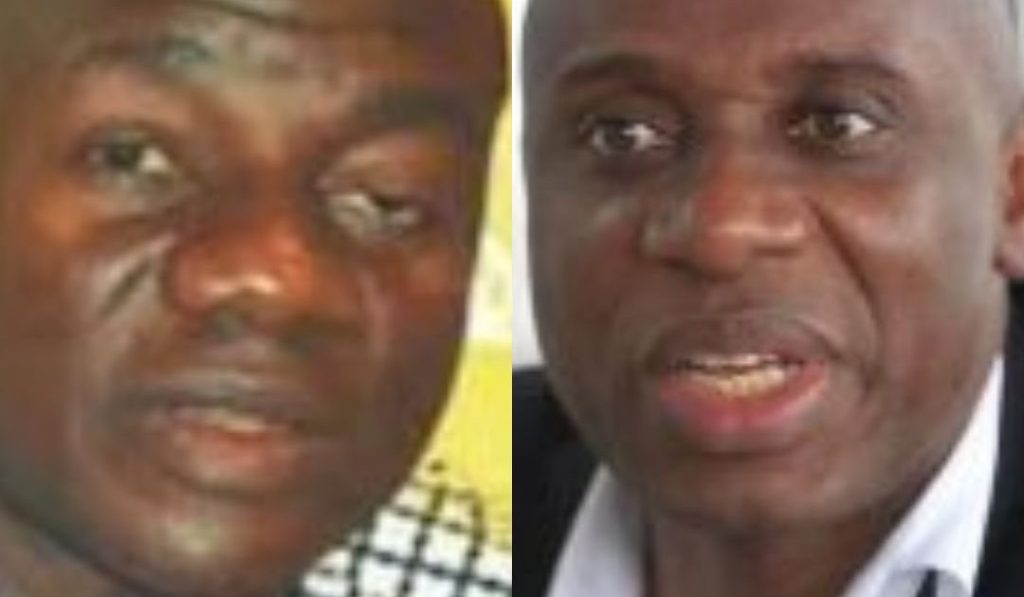The political landscape within the All Progressives Congress (APC) in Rivers State has become increasingly fragmented, as highlighted by the recent statements from the Tony Okocha-led Caretaker Committee. This committee publicly disowned the APC candidates vying for local government seats in the state, a move that further underscores the deep divisions present within the party. Chibuike Ikenga, the committee’s spokesman, clarified in an interview that these candidates were not sanctioned by the party’s National Working Committee. They are identified as loyalists of former Governor Rotimi Amaechi, belonging to a faction led by Emeka Beke, which was previously dismissed from its leadership role following a court ruling. This contentious atmosphere raises questions about the legitimacy of the candidates’ claims to represent the APC in the upcoming local elections.
Ikenga further elaborated on the committee’s position, questioning the legitimacy of how these candidates procured their nomination forms and engaged in the electoral process. He insisted that those aligned with Amaechi lack recognition from the current APC leadership. In his critique, Ikenga remarked on the questionable validity of the primaries held by this faction and emphasized that they had no official standing within the party. This public disavowal emphasizes the internal conflict and ongoing power struggles within the Rivers State chapter of the APC, creating a scenario that puts electoral integrity and party unity into question just days before the scheduled local government elections.
Compounding the tension, the reinstated APC chairman, Emeka Beke, has written to the Independent National Electoral Commission (INEC), arguing that a recent court ruling should not impact the forthcoming elections. Beke’s letter calls into question the authority of the court that ruled against his faction, labeling Okocha as an “unknown member” of the APC. This clash of authority illustrates a struggle for control and legitimacy within the party, with Beke’s camp aiming to reaffirm their claim to the party structure against Okocha’s committee. It represents a classic example of political maneuvering where factions vie not only for electoral success but also for the symbolic representation of party identity.
Ikenga reiterated that his committee will operate in accordance with the established party hierarchy at both state and national levels. He dismissed claims made by Beke’s loyalists, asserting that their opinions hold no sway over the organization of the APC in Rivers State. He further invoked a Supreme Court ruling which reinforced that courts should refrain from interfering in the internal affairs of political parties, framing the ongoing disputes as attempts to manipulate the party’s direction through legal means. This legal framing positions the Okocha-led committee as defenders of party integrity while painting the Beke faction as outsiders attempting to overstep their bounds.
On the flip side, members of Beke’s camp refuted Ikenga’s claims regarding the credibility of their candidates, arguing that they are in fact recognized within the party’s framework. Darlington Uwauju, the reinstated Publicity Secretary of the Beke-led faction, targeted Ikenga’s legitimacy by questioning the committee’s own adherence to party norms, noting that even Okocha had failed to validate his party membership during the last exercise. This counterargument emphasizes the fraught relations between the two factions and highlights the underlying discontent and challenges regarding party membership and recognition, further complicating an already convoluted electoral process.
In conclusion, the emerging narrative within the APC in Rivers State showcases a vital intersection of political ambition, legal challenges, and factional disputes. The disavowal of candidates by the Okocha-led committee and the subsequent rebuttals from Beke’s camp illustrate the complexities of party governance within Nigeria’s political framework. As the local elections loom, the implications of this internal strife could have far-reaching consequences for the APC’s coherence and success in Rivers State. The party, which aspires to present a united front in local governance, risks further fragmentation if these divisions are not effectively addressed. Ultimately, the ongoing tussle highlights the need for clarity and unity within political parties to foster a more stable and effective democratic process in the region.


